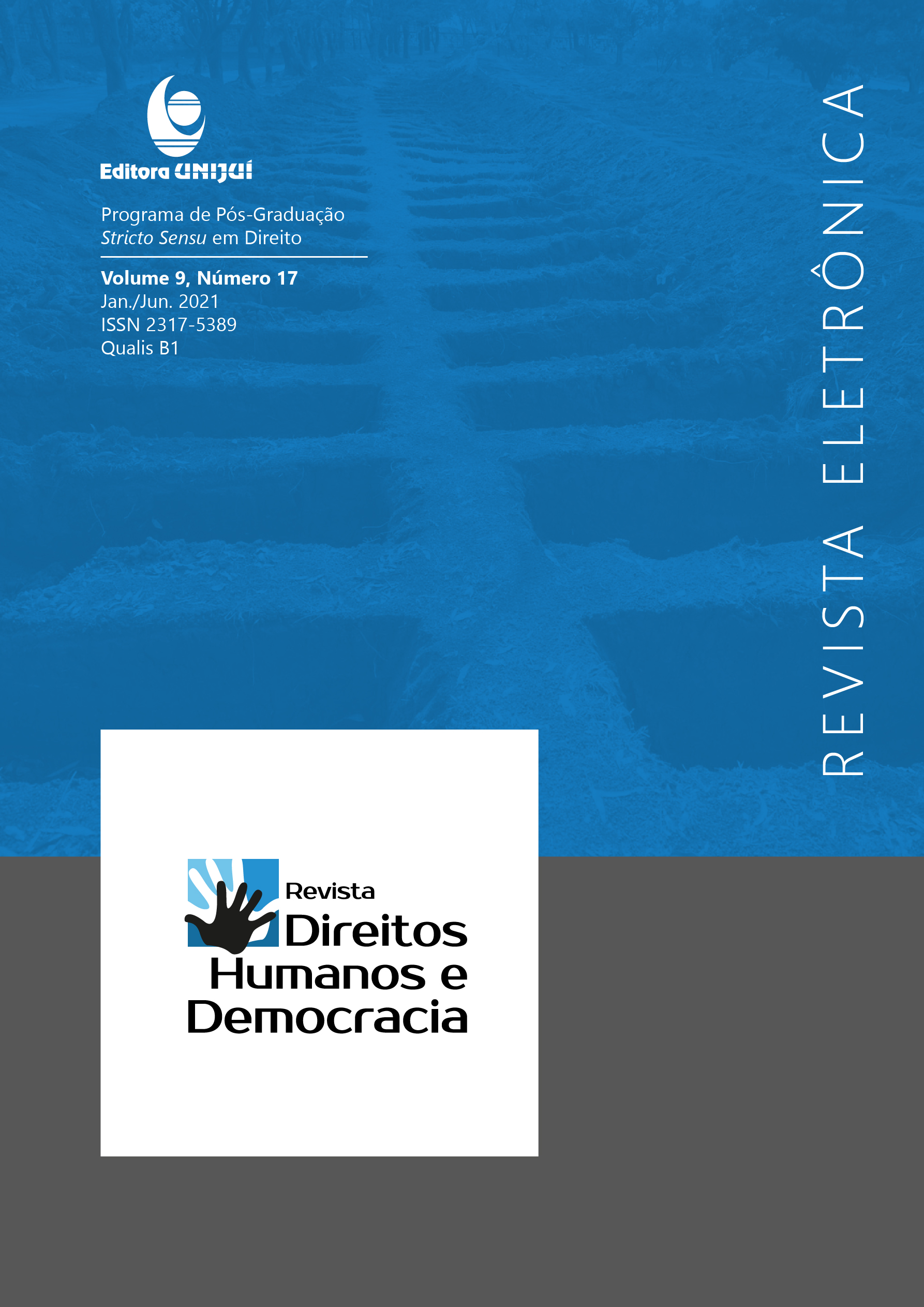FREEDOM OF SPEECH versus RIGHT TO HONOR: an analysis of the Constitutional Complaint n. 22328 / RJ (Informative of Case Law n. 893) of Supreme Court
FREEDOM OF SPEECH VERSUS RIGHT TO HONOR: AN ANALYSIS OF THE CONSTITUTIONAL COMPLAINT N. 22.328 / RJ (INFORMATIVE OF CASE LAW N. 893) OF SUPREME COURT
DOI:
https://doi.org/10.21527/2317-5389.2021.17.9510Keywords:
Personality rights. Expression Freedom. Press Freedom. Weighting rights. Federal Court of Justice.Abstract
The purpose of this paper is to concern the criteria used by Federal Court of Justice to solve conflicts (and balance) between press freedom and personality rights, more specifically the right to honor. To this end, a thorough examination will be carried out on the parameters mentioned by Minister Luís Roberto Barroso on the Constitutional Complaint n. 22328 / RJ, which will also be examined the more flexible position of Supreme Court in admitting a Constitutional Complaint when there is an affront to the press freedom and by allowing, also atypically, the transcendence of the determining motives in processes related to that fundamental right.
Downloads
Published
How to Cite
Issue
Section
License
By publishing in the Revista Direitos Humanos e Democracia, authors agree to the following terms:
Articles are licensed under the Creative Commons Atribuição 4.0 Internacional (CC BY 4.0), which allows:
Share — copy and redistribute the material in any medium or format;
Adapt — remix, transform, and build upon the material for any purpose, including commercial use.
These permissions are irrevocable, provided the following terms are respected:
Attribution — authors must be properly credited, with a link to the license and indication of any modifications made;
No additional restrictions — no legal or technological measures may be applied that restrict the use permitted by the license.
Notices:
The license does not apply to elements in the public domain or covered by legal exceptions.
The license does not grant all rights required for specific uses (e.g., image rights, privacy, or moral rights).
The journal is not responsible for opinions expressed in the articles, which remain the sole responsibility of the authors. The Editor, with the support of the Editorial Committee, reserves the right to suggest or request modifications when necessary.
Only original scientific articles presenting research results of interest, not previously published or simultaneously submitted to another journal with the same purpose, will be accepted.
References to trademarks or specific products are intended solely for identification purposes and do not imply any promotional endorsement by the authors or the journal.
License Agreement: Authors retain copyright over their articles and grant the Revista Direitos Humanos e Democracia the right of first publication.













